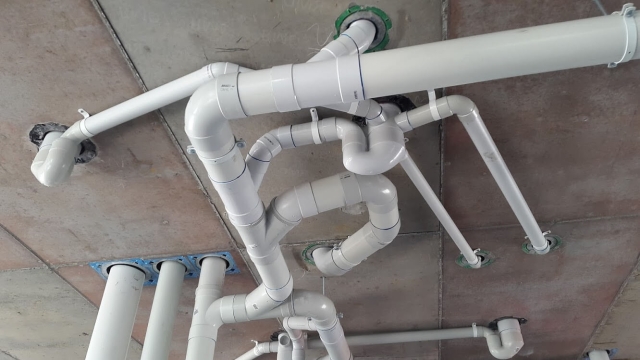Plumbing issues can be a nightmare to deal with, causing inconvenience and potentially costly damage to our homes. Whether you’re faced with a leaking faucet, a clogged drain, or a faulty toilet, it’s essential to have a few tricks up your sleeve to quickly tackle these common plumbing woes. In this plumbing guide, we will share five tried-and-true plumbing hacks that can help you resolve these issues efficiently and save both time and money. So, roll up your sleeves and let’s dive into the world of DIY plumbing solutions that will have you feeling like a pro in no time!
1. Quick Fixes for Common Plumbing Problems
- Plumbing Service Directory
-
Leaky Faucet:
- Turn off the water supply to the faucet.
- Use a wrench to tighten the connections between the faucet and the pipes.
- If the leak persists, replace the worn-out rubber washer.
-
Clogged Drain:
- Pour boiling water down the drain to dissolve minor clogs.
- Use a plunger to create suction and dislodge the blockage.
- For stubborn clogs, try using a mixture of baking soda and vinegar followed by hot water.
-
Running Toilet:
- Open the toilet tank and check if the flapper valve is broken or not properly sealed.
- Adjust the chain length if necessary to ensure the flapper valve closes fully.
- If the issue persists, try replacing the flapper valve assembly.
Remember, these quick fixes can provide temporary relief until professional help is available. It’s important to address plumbing issues promptly to prevent further damage.
2. Essential Tools and Supplies for DIY Plumbing
When it comes to tackling plumbing issues on your own, having the right tools and supplies is crucial. Here are some essential items you should have in your DIY plumbing arsenal:
-
Plunger: A plunger is a must-have tool for dealing with common plumbing problems such as clogged toilets and drains. Choose a plunger with a rubber cup that can create a strong seal around the affected area.
-
Pipe Wrench: This adjustable wrench is specially designed for gripping and turning pipes. It comes in handy for tasks like tightening or loosening pipe connections when working on repairs or installations.
-
Teflon Tape: Also known as plumber’s tape, Teflon tape is used to create a watertight seal on threaded plumbing connections. Simply wrap the tape around the threads before screwing the components together to prevent leaks.

These are just a few of the essential tools and supplies you should have in your plumbing toolkit. As you continue to build your DIY plumbing skills, consider investing in other specialized tools based on the specific tasks you encounter.
Remember, safety is important when working with plumbing systems. Always wear protective gear and exercise caution to avoid any accidents.
3. Preventive Maintenance to Avoid Costly Plumbing Issues
Regular maintenance plays a crucial role in keeping your plumbing system running smoothly and preventing costly issues. By implementing these preventive measures, you can potentially save a significant amount of money and avoid unnecessary headaches.
-
Check for leaks: Periodically inspect your faucets, showerheads, and pipes for any signs of leaks. Even a small drip can waste a substantial amount of water and result in higher water bills. If you notice any leaks, be sure to fix them promptly by replacing worn-out washers or tightening connections.
-
Avoid clogged drains: Preventing clogs is much easier and more cost-effective than dealing with them later. Be mindful of what you put down your drains, avoiding substances like grease, hair, and large food particles. Installing drain strainers can help trap debris and prevent it from causing blockages.
-
Maintain proper water pressure: Excessive water pressure can strain your plumbing system and lead to leaks or burst pipes. Use a pressure gauge to monitor the water pressure coming into your home. If it exceeds the recommended range of 40-60 psi, consider installing a pressure regulator to ensure a safe and consistent pressure level.
Remember, regular preventive maintenance is key to avoiding surprising plumbing problems and expensive repairs. By adopting these simple habits, you can enjoy a smoothly functioning plumbing system and peace of mind.
In conclusion, taking proactive measures like checking for leaks, preventing clogs, and maintaining proper water pressure can significantly reduce the chances of encountering costly plumbing issues. Don’t overlook the importance of preventive maintenance – it will save you both time and money in the long run.
